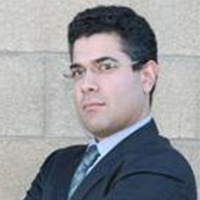Austin White Collar Crime Lawyer, Colorado
Sponsored Law Firm
-
 x
x

Click For More Info:
-
The Law Offices of Richard L. Cooper, P.A.
848 Brickell Avenue Suite 800 Miami, FL 33131» view mapDWI/DUI, Drug Trafficking, Felony Nationally Ranked Top 40 Under 40
With Richard L. Cooper you can expect a trusted confidant who will work diligently to fully understand your case and determine a road map to help you regain control of your life.
800-756-2781
Not enough matches for Austin White Collar Crime lawyer.
Below are all Austin Criminal lawyers.
Brandon U. Luna
✓ VERIFIEDCriminal, Divorce & Family Law, Estate, Traffic, Juvenile Law
At LunaLaw, LLC, we focus all of our resources on providing exceptional client service in the full range of criminal defense and family law matters. N... (more)
Michael Vaughn
Bankruptcy, Family Law, Estate, Real Estate, Criminal
Status: In Good Standing Licensed: 26 Years
James Edward Siegesmund
Divorce & Family Law, Criminal, Estate, Traffic
Status: In Good Standing Licensed: 19 Years
Robert T. Zentner
Government, Criminal, Adoption, Business & Trade
Status: In Good Standing Licensed: 24 Years
Bennet Alden Morris
Criminal, Administrative Law, Traffic, Land Use & Zoning
Status: In Good Standing Licensed: 21 Years
Robin M. Lerg
Litigation, Estate, Criminal, Discrimination
Status: In Good Standing Licensed: 37 Years
Robin McIntosh Lerg
Litigation, Estate, Criminal, Civil & Human Rights
Status: In Good Standing Licensed: 37 Years

 Richard L. Cooper Miami, FL
Richard L. Cooper Miami, FL AboutMiami Attorney at Law
AboutMiami Attorney at Law ServicesCriminal Defense
ServicesCriminal Defense

